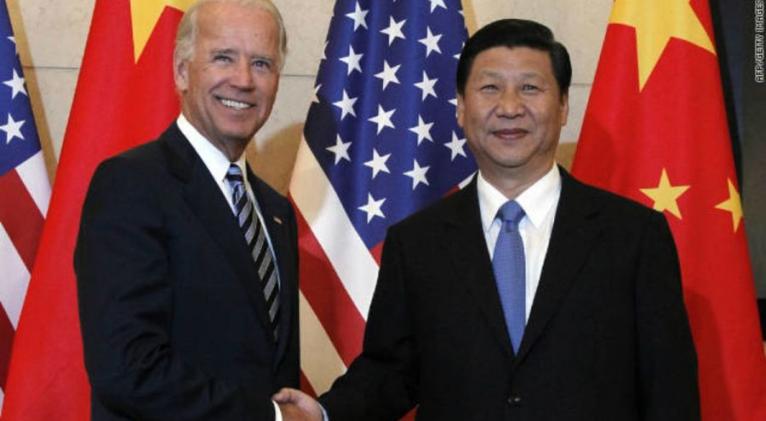Joe Biden's Stance Against China Is Radically Different From Donald Trump's
especiales

ies between the United States and China remain at rock bottom eight months into Joe Biden's presidency, despite early hopes in Beijing that the Democrat could help reset the consequential relationship after four years of hostility under Donald Trump.
The two governments are communicating again, but they appear to be talking at cross purposes, each declaring its own fundamental principles in front of an interlocutor that may as well be wholly absent from the conversation.
While Xi Jinping waits expectantly for the reversal of Trump-era measures targeting China and especially the Communist Party, Biden is quietly—and sometimes imperfectly—bringing to bear America's strengths for what he has likened to an existential battle of the systems between democracy and authoritarianism.
The offensive rhetoric behind Trump's trade war and coronavirus strife may be gone, but Biden's calmer tone masks deeper calculations that, when viewed together, have never made the "China containment theory" seem so real. Beijing has seen efforts by the U.S. to challenge it militarily, but it now faces fierce competition in the realms of economics, technology, diplomacy and even international leadership in global health.
Washington, D.C., has rivaled Beijing's vaccine diplomacy and seeks to dilute its influence in developing countries. It has mounted these challenges through coalition building, leaving China to repeatedly fume over what it calls "Cold War mentality."
Chinese officials and the country's state news outlets in particular have homed in on America's failures when it hasn't been up to the mark, but there is little evidence that China's attempts to discredit the U.S. are taking hold outside of intended audiences. More importantly, America trudges on, and U.S.-led efforts to secure the existing international order show no signs of slowing down.
"Trump largely saw any competition with mainland China in exclusively U.S. vs. PRC [People's Republic of China] terms, while Biden appears to see things through the prism of the free world at large (with America in the lead) vs. Beijing," said Sean King, senior vice president at the Park Strategies consultancy in New York.
"The Washington-Beijing rivalry's here to stay," King added. "And Biden seems to want to bring as many nations and peoples as he can along with him."
Su Tzu-yun, a fellow at Taiwan's Institute for National Defense and Security Research, said the Biden administration's comprehensive approach to Beijing was the result of "structural changes" in the bilateral relationship, with the U.S. perceiving a direct challenge to universal values such as freedom and democracy.
The nations are competing in traditional arenas but now also trying to address the issue of nuclear balance, he told Newsweek.
"China's DF-41 [intercontinental ballistic missiles—ICBMs] and launch sites in Xinjiang can travel a shorter distance across the North Pole and strike the U.S. mainland more quickly," Su said. The Chinese navy's nuclear-powered ballistic missile submarines can also threaten the continental U.S. if they cross the Bashi Channel south of Taiwan and access the Philippine Sea in the Western Pacific, he added.
The recently announced AUKUS security pact—to provide Australia with nuclear-powered submarines—and the elevation of the Quad (India, Australia, Japan and the U.S.) summit to the leadership level are other indicators of U.S. attempts to counter not only China's military expansion, but also its influence in emerging technologies and agenda-setting international organizations.
Chinese Ambassador Outlines How U.S. And China Can Avoid ConflictREAD MOREChinese Ambassador Outlines How U.S. And China Can Avoid Conflict
Since Biden's inauguration in January, he and senior members of his administration have insisted that, in spite of intensifying competition, cooperation with China is possible and even preferable. Climate action and global health are considered low-hanging fruit and often cited as areas where Washington and Beijing can come together.
However, observers have questioned the viability and coherence of this posture in light of the U.S.'s pledge to continue confronting China on fundamental issues such as human rights as well as military and economic coercion against countries with views that diverge from those in Beijing. Crucially, China has made clear its own position on what it sees as America's attempt to have its cake and eat it too.
As recently as Wednesday, China's envoy in Washington, Qin Gang, warned: "The United States should not expect China's cooperation in areas where only the U.S. has demand and interests, while neglecting or even undermining China's interests at the same time, in particular on these core issues concerning China's sovereignty and territorial integrity."














Add new comment